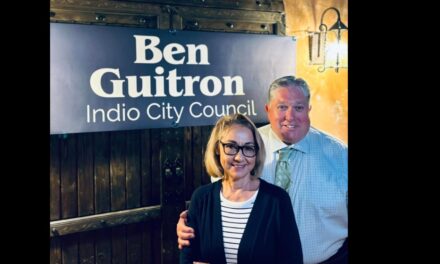PALM DESERT – Nearly two years after the city of Palm Desert was put on notice that it was in violation of the California Voting Rights Act because of its at-large election system, the City Council has taken no public vote.
Malibu-based Attorney Kevin I. Shenkman sent the certified letter on Sept. 15, 2017. He sent the letter on behalf of his client Southwest Voter Registration Education Project and its members living in Palm Desert.
Voting within Palm Desert is racially polarized, resulting in minority vote dilution, which violates the California Voting Rights Act of 2001, Shenkman alleges in his letter. Shenkman urges Palm Desert to voluntarily change its at-large system of electing member of the City Council . Otherwise, he wrote, “We will be forced to seek judicial relief.” Shenkman asked to be advised no later than Nov. 3, 2017 as to whether Palm Desert would like to discuss a “voluntary change” to its current at-large system.
The last nine elections are illustrative of his point, Shenkman argues in his letter. “Not a single Latino candidate competed in any one of the respective Council contests. From 2000 to 2016, 24 members were elected to the Palm Desert City Council from a pool of 52 candidates, yet not one of those candidates was Latino.”
You may read Shenkman’s five-page letter in its entirety by clicking here.
Shenkman did not return repeated phone calls or emails regarding his charge of Palm Desert violating the California Voting Rights Act.
“The City has not responded to the Shenkman letter,” City Clerk Rachelle Klassen told Uken Report. “Legal review generated by the Shenkman letter is protected by the attorney-client privilege.”
City Councilmember Jan Harnik said that when the City Council makes a decision it will have to be by a majority vote.
 “We have the letter and it’s being held,” Councilmember Jan Harnik told Uken Report. “We were waiting to see how it all shakes out in other cities. A couple of councilmembers are looking at it. I’ve been focused on so many other things. It has not been top of mind.”
“We have the letter and it’s being held,” Councilmember Jan Harnik told Uken Report. “We were waiting to see how it all shakes out in other cities. A couple of councilmembers are looking at it. I’ve been focused on so many other things. It has not been top of mind.”
The letter is similar to those sent to the cities of Indio, Cathedral City, and Palm Springs. Each was also accused of a California Voting Rights Act violation. Each of those cities moved swiftly to voluntarily move to district-based elections rather than spend money on a costly lawsuit none could win.
Most California cities with City Councils elected at-large, upon receipt of a Voting Rights Act violation notice, have chosen to voluntarily switch to districts. A few cities have chosen to fight this request. In one of the significant cases, the city of Palmdale, in 2012, lost and was ordered to switch to district elections. Palmdale paid millions in legal fees to plaintiff and defense counsel and had their districts drawn not by their City Council after input from their residents, but by plaintiff’s counsel. Recent changes in the law make it even more difficult to win these lawsuits than it was in 2012.
Palm Springs Unified School Board and College of the Desert Board of Trustees have also moved to district elections.
Image Sources
- Jan Harnik: Jan Harnik





![Enrolling Now, Rewarding Careers Ahead [Sponsored]](https://ukenreport.com/wp-content/uploads/2024/04/COD_heroes_1-1385-2-440x264.jpg)

